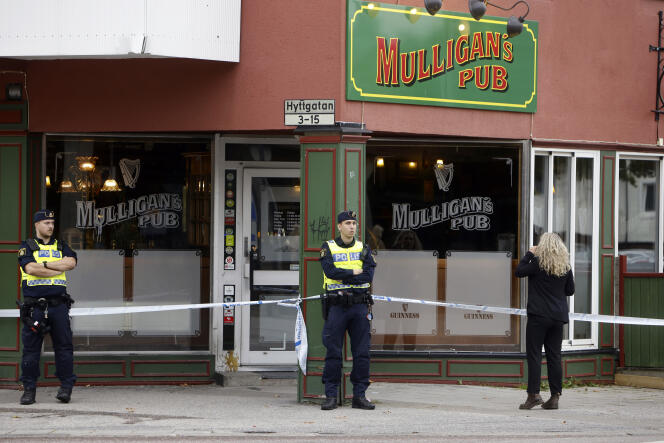


Three people were killed in less than 12 hours. Twelve victims since the beginning of September, 62 in 2022. In Sweden, gang warfare continues to kill, to the point where police chief Anders Thornberg compares clashes between rival gangs to "terrorist violence," and the Conservative Prime Minister, Ulf Kristersson, announced on Friday, September 29 that the army would come to the aid of the forces of law and order.
This is not a new phenomenon. But the particularly shocking recent events have sent shockwaves through Swedish society. It all began with a shooting near a sports field, where dozens of children were training, at 6:43 pm on Wednesday evening, in the Fruängen district of southwest Stockholm. An 18-year-old man was killed. Three hours later, some 30 kilometers away, two men were targeted in the Jordbro district. One survived, the other did not.
Then, at 3:45 am on Thursday morning, a homemade bomb exploded in front of a building in a village north of Uppsala, 70 kilometers north of Stockholm. Soha Saad, a 24-year-old woman who lived in the apartment next to that of the man targeted by the bomb, was killed instantly. This young teacher was the third collateral victim since the beginning of September in these clashes between rival gangs. They also led to the death of a 23-year-old man in Uppsala and that of Erik Viiri, 71, who was visually impaired and mowed down by a bullet during a shooting in a pub in Sandviken, 120 kilometers north of Stockholm, on September 21.
Confirming the seriousness of the situation, Conservative Prime Minister Kristersson spoke to Swedes on Thursday in a televised address in which he accused the left, in power from 2014 to 2022, of having been "naive" and "ignorant." "Many of us saw what was happening and warned people," he said, blaming "an irresponsible migration policy" and echoing far-right leader Jimmie Akesson, who recently said that immigration was "100%" responsible for crime.
In addition to bringing in the army, Kirstersson announced an arsenal of repressive measures, ranging from preventive phone tapping to the construction of prisons for minors, not to mention the deployment of cameras equipped with facial recognition software. His proposals left criminologist Amir Rostami dubious: "37 billion kronor [€3.2 billion] have been allocated to the police this year, but without any assessment of the effectiveness of the measures already put in place." Meanwhile, he worried that violence was escalating: "The threshold of what is acceptable tends to move further and further away. Today, we find ourselves faced with an extremely violent spiral, where each act is more brutal than the last."
You have 54.52% of this article left to read. The rest is for subscribers only.
